Padma Lakshmi's Recipe for a Better America
The television personality and author has been hungry for change—politically and personally. She hopes her next cookbook will be the answer.

For nearly two decades, Padma Lakshmi brought both elegance and edge to Top Chef, guiding viewers through haute cuisine with wit, warmth, and an unflinching palate. But beneath the tasting menus and culinary showdowns was a deeper mission: to show that food, no matter how refined, is a shared human experience.
That belief takes center stage in Lakshmi’s Padma’s All American, a new cookbook out November 4. Inspired by her travels filming Hulu’s Taste the Nation, the book isn’t just a collection of recipes, it’s a celebration of immigrant communities across the country and the dishes that embody their culture. Part history, part how-to, the 55-year-old’s latest offering is a love letter to the people she views as the backbone of the food industry and the beating heart of America’s fare.
Here, Lakshmi shares why food is political, the power of using your passions for good, and why storytelling is always the way to create change.
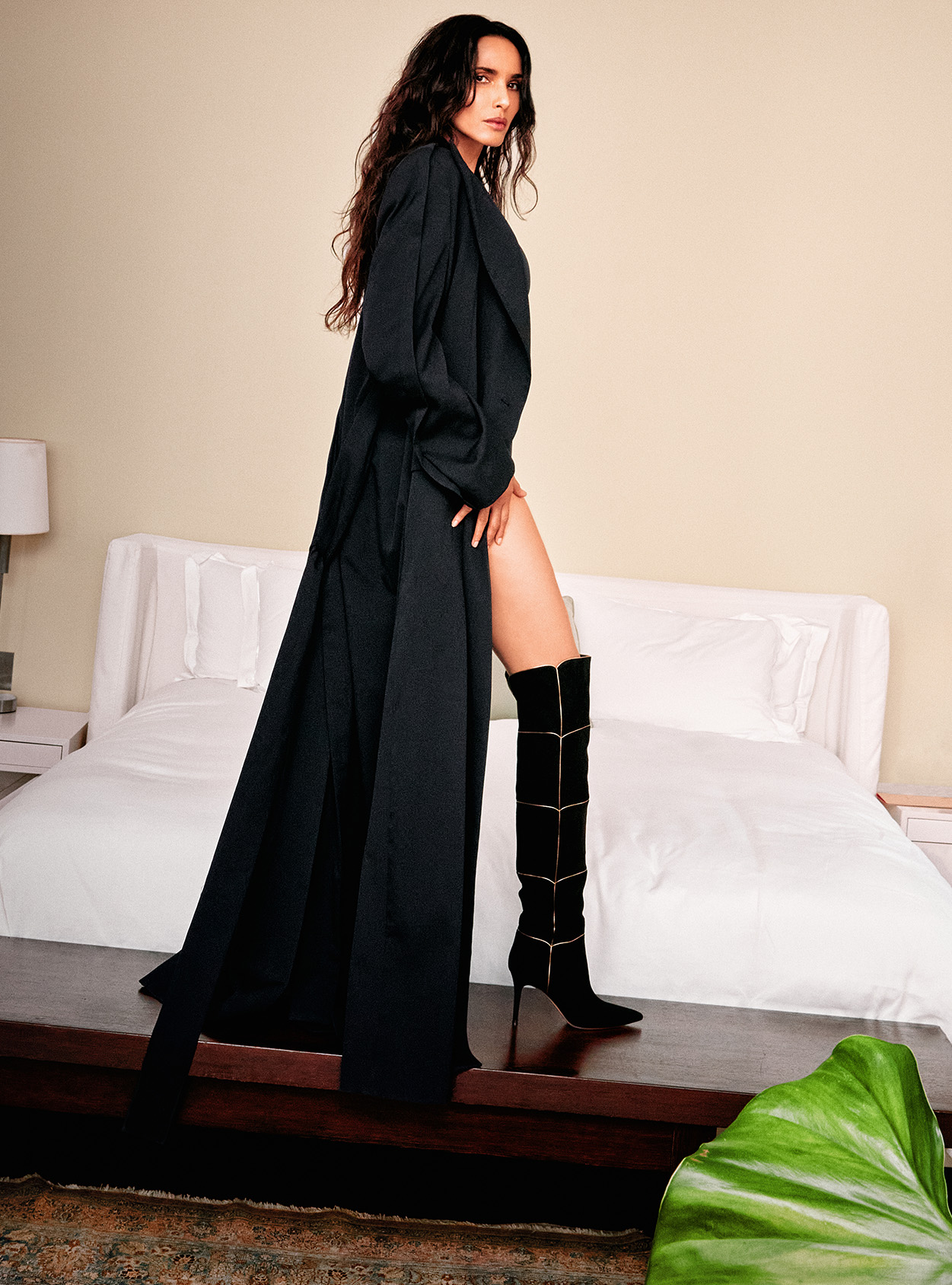
AnOnlyChild coat; Gianvito Rossi boots
Marie Claire: Your cookbook is dedicated to immigrants. Was that always part of the ethos and idea to write it?
Padma Lakshmi: After the 2016 election, I started working with the ACLU as a reaction to what was happening. I just felt so impotent; I felt like people were villainizing immigrants without letting them speak for themselves. That work really opened my eyes, and I wanted to find a way to merge that effort with my professional life—two birds, one stone. The idea was always to write a cookbook. But once I showed it to my producing partner, he was like, “This should be our show.” When I went back to doing the book [after filming Taste the Nation], it was easier because we already had 24 communities to focus on.
MC: Do you feel a sense of pressure in telling people’s stories and preserving not just recipes but their histories and communities?
PL: I take it very seriously. I really felt the responsibility because I’ve been othered—and so many of us have—or there’s been misconceptions for so long, I didn’t want to then repeat that. I think what leads me is my curiosity and what saves me is my anxiety or my insecurity about getting it wrong. I can’t be an expert on everything, but I can make sure that I also consult and include voices from that community at every turn. I have really talented producers who work with us, and we do months and months of research. The book benefited from everything we did for the show.
Get exclusive access to fashion and beauty trends, hot-off-the-press celebrity news, and more.
When we did our Indigenous episode in Arizona, I read a lot about the Diné people, and I really wanted to meet this professor at the University of Arizona. We made a difficult decision to use his material as part of our research but not to interview him on camera because he’s a white male. Although he’s done a great job, and many in that community also look to those pieces of writing, we wanted to hear from the actual members of the community. Being mindful of that is always helpful and a reminder to get multiple sources, no matter how lauded or established they are.
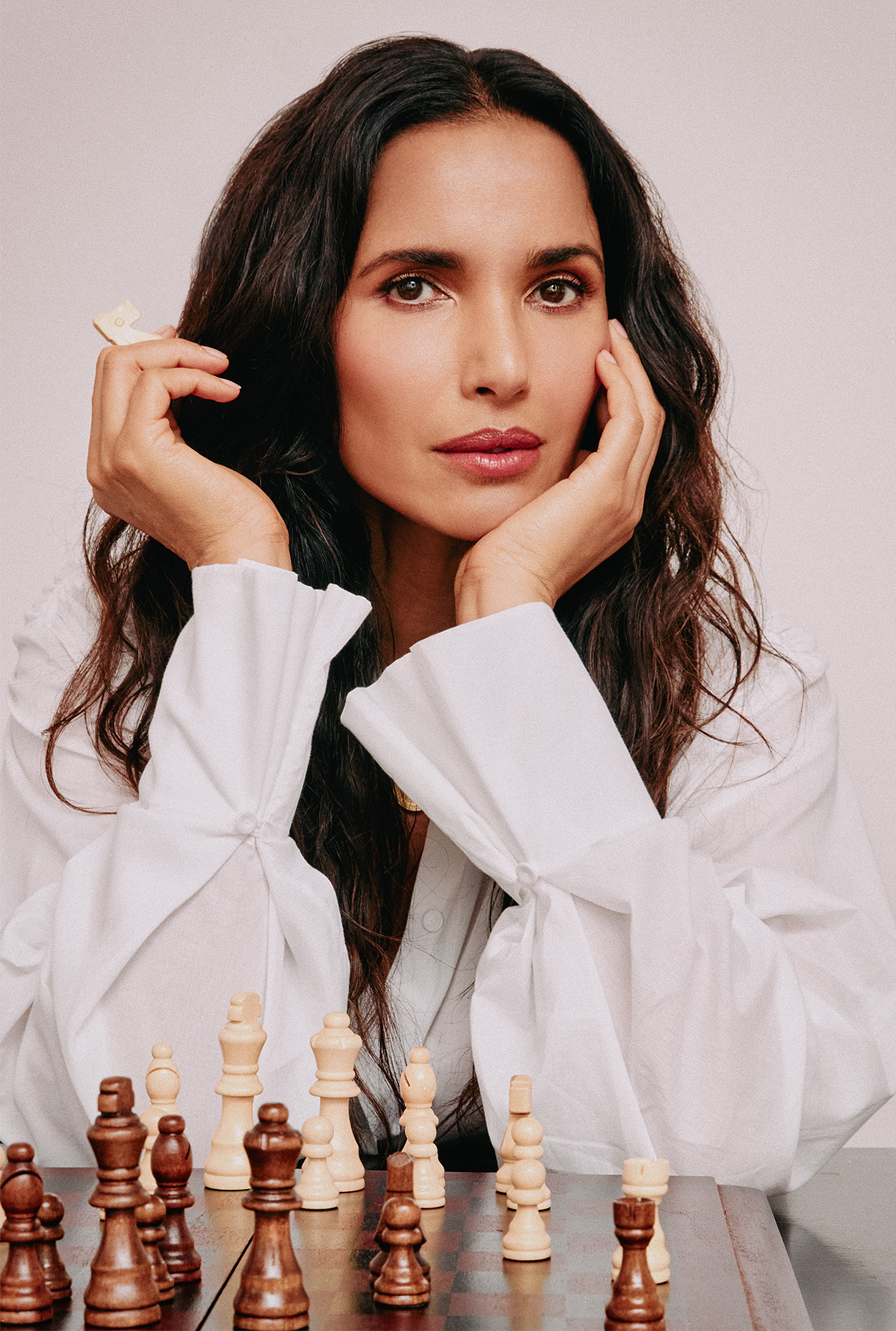
Another Tomorrow top
MC: Was there someone you met in your travels who changed you in a way that was unexpected?
PL: When we were in El Paso, I did an interview with a man who owned this gas station and the diner that was attached to it. That kitchen is run completely by Mexican women. They get up at 5 a.m., cross the border from Juárez, get in front of that grill, cook all day, and make the trek back. And the diner would not be able to exist, would not have the low prices it has, if it weren’t for the labor of those women.
This guy, he voted for Trump. When I pushed him about the immigration part of it and I said, “Your business will close down tomorrow,” he would reply, “Oh yeah, well, Trump is wrong about that.” So there’s this real disconnect. And here’s the real kicker: His father or grandfather snuck in as an illegal immigrant through Mexico from Syria.
It goes to show you how much we internalize prejudice around us, even though at one time people very close to us, whom we love, whom we’re connected to, have suffered at the hands of that same prejudice that we internalize and then dispense. That really changed me.
I thought the wisest thing I could do in that moment, after I did try to push him, is just let him talk, because if I had challenged him at every turn, I would’ve shut him down. So I think, in that way, we should listen to each other more. We’re always so fast to convince people of something with our words, and I feel that it’s easier to convince someone with your actions and with evidence.
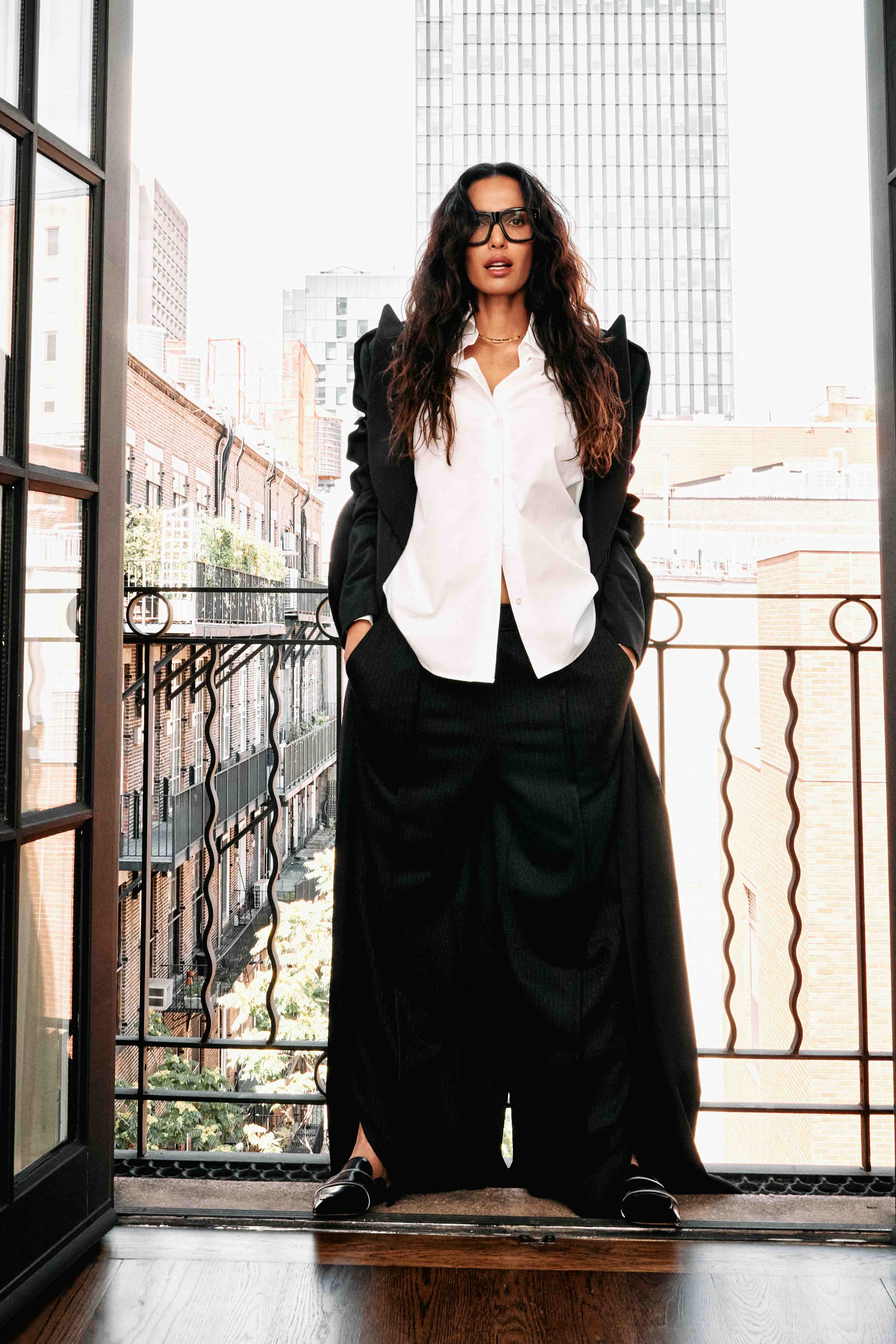
AnOnlyChild blazer, top, pants; Ivi Los Angeles necklace; Dita eyeglasses; Paul Andrews shoes
MC: You mentioned in 2016, when this process started, you were feeling confusion and fear. How are you feeling at this point?
PL: It’s sad and it’s horrifying. From a very hawkish, capitalistic view, it’s also stupid. I’ve seen footage of tomatoes rotting on the floor because they’ve raided this barn and ICE has just rounded up every single farmworker. I think there’s cognitive dissonance about how this country is actually functioning and run and why it’s able to be the capitalist society it is—and that’s because it runs on immigrant labor.
Many of us, as immigrants, we’re told not to make noise, to not make waves, to keep our head down and work. I think a lot of us, whether we’re Asians or Latinos or whatever, have done that, and we’ve let other people speak for us and tell our story. One of the principal goals of both the show and this book is to allow these communities to tell their own stories so that someone else can’t vilify us and twist the facts.
MC: What’s giving you hope right now in the food world?
PL: I hosted the James Beard Media Awards in June, and I was pleased to see so many diff erent types of people being recognized for their work. Nowhere else do you see the contributions of immigrants than in our food chain, from a farm to a fine-dining tasting menu. Go in the back of the kitchen, see who’s there. It’s not European Americans. Maybe they have the leadership positions, but the people doing the bulk of the work are immigrants.
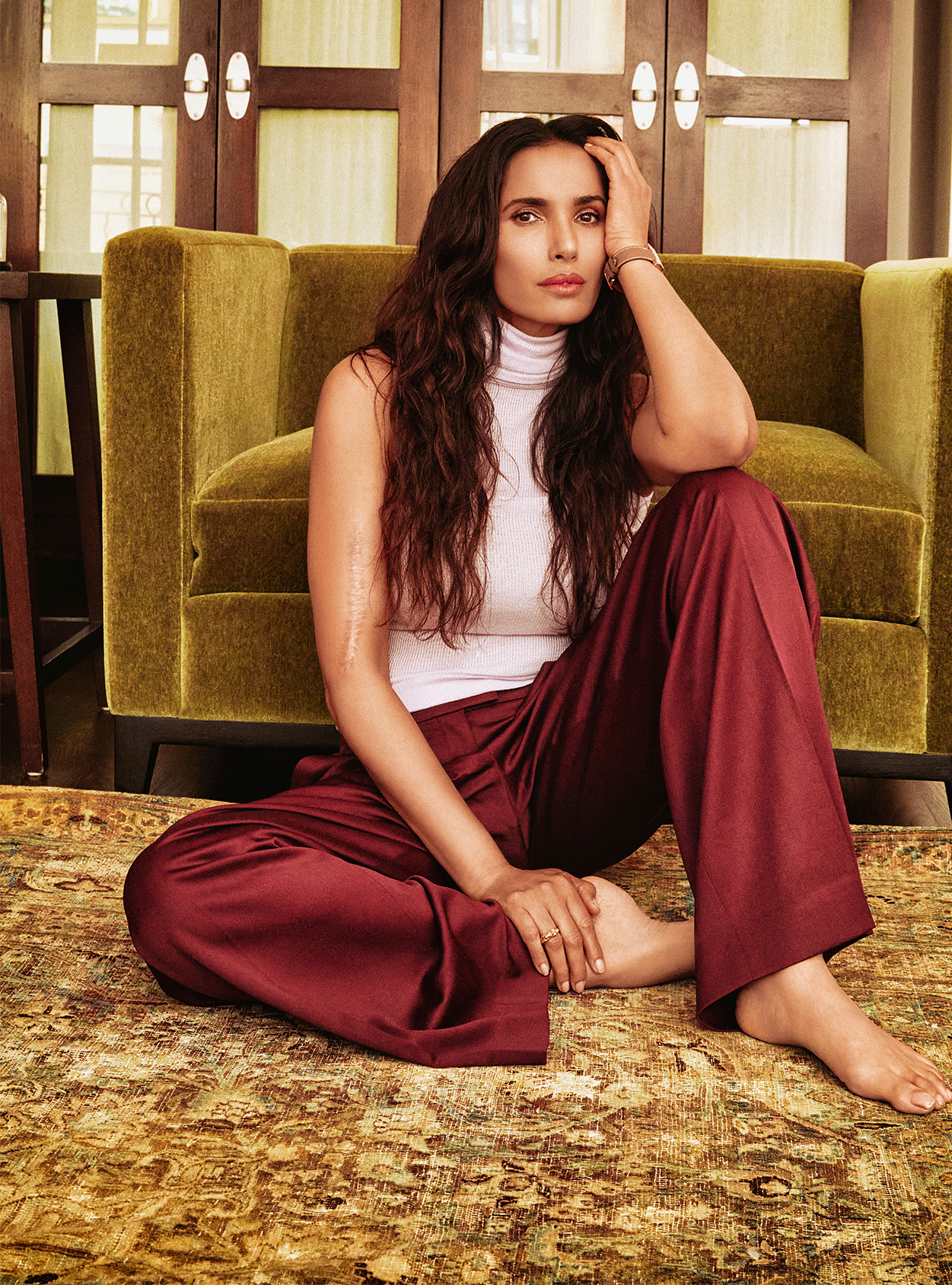
MC: Is there a dish in the book that is especially meaningful to you?
PL: In the book, there are two versions of a recipe for rasam: One is traditional rasam, and one is called Mussels with a Rasam Vibe. And that is exactly what the book is about. It’s about taking all this food heritage that we’ve all come with through our lives and then taking it and making it uniquely American.
When I was in college, I hung out with some French international students, and they always made mussels, very basic Provençal style. Then I got the idea just to make mussels with rasam, and it was wonderful. And then I remembered that the French actually were in Pondicherry, in South India. There’s a direct lineage that makes sense historically for that dish, both in my own life and in the context of who colonized India. All of those parts of history are important, even the painful parts, because I’m a believer that something good comes from everything. And the thing that we can point to with all this cross-cultural colonization that is wonderful is not only an exchange of ideas—which is hard to pinpoint and can be ephemeral, depending on whom you talk to—is the food.
Also in the book is a Greek soup recipe. I worked in an Italian restaurant, Pompeii Pizzeria, run by Greek people from the time I was 14 to the time I graduated high school. For me, that soup is nostalgic. It reminds me of working with [the owner’s daughter] Kelly in high school. It reminds me of having a crush on her older brothers. All of that is in that bowl of avgolemono.
That’s what I’m trying to say in the book: I may not be Greek, but having been close to Greek people in my life who are important, I have also been affected and influenced by that culture. To me, that is what makes America different from living in every other country. I think it can teach us how to be mashed up together in a way in other areas, not just food.
New York is a perfect example of that; it is one of the few places in the world where Jews and Muslims do live in harmony and often shop at the same stores for their halal. And I’m a product of growing up in New York City. So it never occurred to me to segregate all these influences in my head or on my palate because they weren’t segregated in my daily life.
That is what makes America different from living in every other country. It can teach us how to be mashed up together in other areas, not just food.
MC: How has your relationship with food evolved?
PL: I didn’t grow up going to fancy restaurants. My mom’s a nurse. My stepfather was a plumber; now he’s a farmer. We went out to eat maybe once a month, to have Chinese or Thai or pizza. And so I didn’t grow up knowing the names of chefs. I only started going to fancy restaurants after I started getting a little money, after I started traveling as a model after college.
When I first started Top Chef, I was very taken with having these fancy tasting menus and going to all these restaurants—Noma one day in Copenhagen, El Bulli, before it closed, in Spain. But nowadays, I’m much happier going to some canteen out in Crown Heights or Ridgewood, Queens, to have Guyanese food or Trini food. You can basically open the back of your truck and I will taste the food you have in it. I am much more interested in what the average schoolteacher eats or where the cab driver stops on his lunch break.
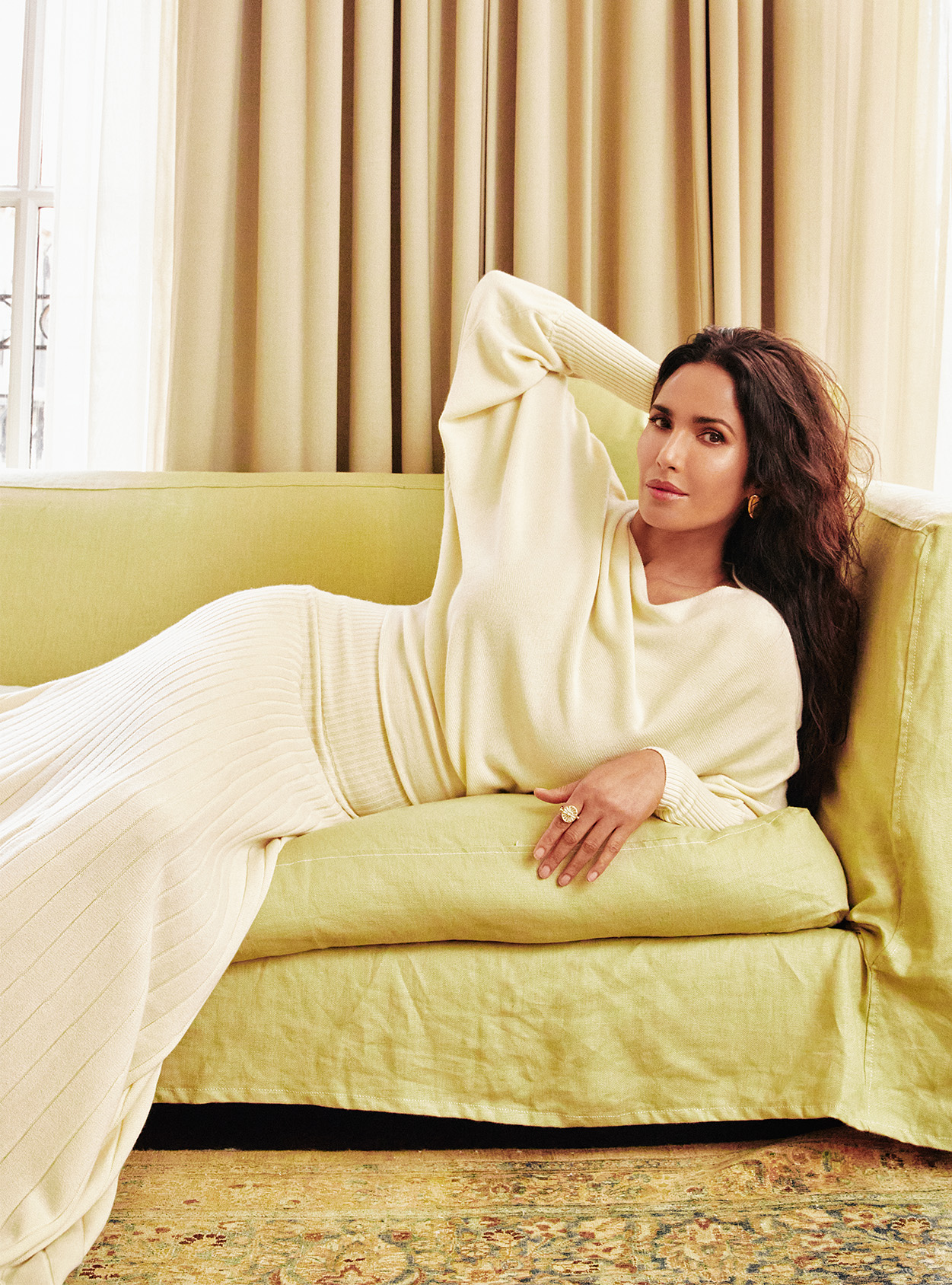
MC: Your daughter, Krishna, loves to cook too. What has she taught you in the kitchen?
PL: She makes a beautiful couscous upma with sriracha butter. She doesn’t know the provenance of how that got filtered down to her through what my grandmother cooked and what my mother cooked. My mother cooked [upma] with a box of cream of wheat; she couldn’t find the correct flour here. Also, my mother worked full time; she was on her feet, and this is something that we could easily eat a lot for breakfast or after school.
I used to make it with quinoa because it is healthier than having wheat. Krishna is not a big fan of quinoa, so she started making it with couscous. At first, she was not allowed to use a stove, so she would get our nanny to chop the celery and the carrots, and then she’d put it in the microwave—not with water but with milk and butter and sriracha because she didn’t know how to season.
But the one thing I will say is that Krishna has shamed me for being reticent in certain ways. She always says, “Mom, just be yourself. People don’t know how funny you are. You don’t have to be so reserved.” She’ll always make fun of me that when I’m doing a cooking video, I’m sort of my “white soccer mom,” and that’s not me at all. I curse, and I’m much more wild and flamboyant and make off-color jokes. So she has brought me out of my shell a lot. She’s also the one who pushed me to try stand-up.
MC: Is comedy a new passion?
PL: I’m in improv right now; I’ve been doing classes for the last two years. I performed at the Brooklyn Comedy Collective this past Saturday. It was daunting and exciting. The food stuff was always supposed to be my version of waitressing, in a way. But then it really took off, and I was like, who am I to be like, “No, no, no, I’m an actor.” I thought, “If this is what the universe wants for me, then that’s maybe what I should be doing.” When I quit Top Chef, I was like, “I want to quit so that I can feed my brain and feed my spirit and my creativity,” because after a while it just didn’t feel stimulating anymore. I wanted to take the time off and make sure I did something that was pure joy, and I found it [in improv].
This interview has been edited and condensed for clarity.
Photographer: Ruben Chamorro | Stylist: Cassy Meier | Hair Stylist: Josué Perez | Makeup Artist: William Scott | Manicurist: Nori | Location: Special thanks to The Mercer
Neha Prakash is Marie Claire's Entertainment Director, where she edits, writes, and ideates culture and current event features with a focus on elevating diverse voices and stories in film and television. She steers and books the brand's print and digital covers as well as oversees the talent and production on MC's video franchises like "How Well Do You Know Your Co-Star?" and flagship events, including the Power Play summit. Since joining the team in early 2020, she's produced entertainment packages about buzzy television shows and films, helped oversee culture SEO content, commissioned op-eds from notable writers, and penned widely-shared celebrity profiles and interviews. She also assists with social coverage around major red carpet events, having conducted celebrity interviews at the Met Gala, Oscars, and Golden Globes. Prior to Marie Claire, she held editor roles at Brides, Glamour, Mashable, and Condé Nast, where she launched the Social News Desk. Her pop culture, breaking news, and fashion coverage has appeared on Vanity Fair, GQ, Allure, Teen Vogue, and Architectural Digest. She earned a masters degree from the Columbia School of Journalism in 2012 and a Bachelor of Arts degree from The Pennsylvania State University in 2010. She lives in Manhattan with her husband and dog, Ghost; she loves matcha lattes, Bollywood movies, and has many hot takes about TV reboots. Follow her on Instagram @nehapk.